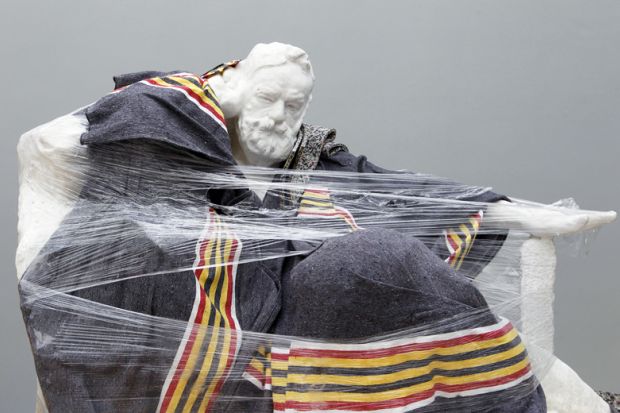French PhD students are now paid less than the minimum wage for teaching, according to the country’s Confederation of Young Researchers (CJC), which has accused universities of treating them like Uber drivers.
The general minimum wage rises with inflation, but some PhD students are treated not as employees but vacataires: temporary teachers with a specific hourly rate of pay and exempt from the broader minimum wage, explained Quentin Rodriguez, the CJC’s president.
This year, the minimum wage has finally crossed the rate of pay for vacataires, calculated as €9.86 (£8.70) an hour by the CJC, he said.
“It’s a bit like Uber,” he said, as PhD students who teach “are considered as external, fare workers that work with the university but are not employed by universities”.
“Universities could choose to have junior researchers and teachers with a regular contract,” he said – but many choose not to, as it allows them more flexibility.
“It’s really tricky. They [PhD students] need this teaching to live and continue their PhD, and for their CVs. It’s professional experience,” he said. “But at the same time it’s precarious,” leading some to drop their studies, Mr Rodriguez said.
Aside from the rate of pay, the CJC is concerned that the vacataire arrangement means that universities only pay PhD students once a semester, rather than monthly.
One PhD student, who asked not to be named, said that this delay in payment meant that she had to rely on her family and find another job to support herself financially last year despite teaching 10-12 hours a week, delaying progress on her thesis. “I had to live,” she said.
France’s Conference of University Presidents has argued that only a small number of the vacataires are PhD students. Many are lawyers, doctors and other professionals brought in to deliver courses to students on top of their existing jobs, said Mr Rodriguez.
Although there are no official statistics, the CJC estimates that around a quarter of PhD students, about 10,000 to 15,000, and particularly in the social sciences and humanities, are on these temporary teaching arrangements. This temporary teaching work “for a lot of PhD students [is] their only source of money to do their PhD”, he said.
The CJC is now in discussions with the ministry, in the hope that a new research law will tackle the issue and introduce a specific contract for PhD students.
A spokeswoman for France’s Ministry of Higher Education and Research said that the issue was being discussed ahead of the drafting of a new law on research, to be published by the end of this year. Frédérique Vidal, the higher education minister, has said that this law – which would come into force in September 2021 – would give “more time, more means, and more flexibility” for research.
Register to continue
Why register?
- Registration is free and only takes a moment
- Once registered, you can read 3 articles a month
- Sign up for our newsletter
Subscribe
Or subscribe for unlimited access to:
- Unlimited access to news, views, insights & reviews
- Digital editions
- Digital access to THE’s university and college rankings analysis
Already registered or a current subscriber? Login








